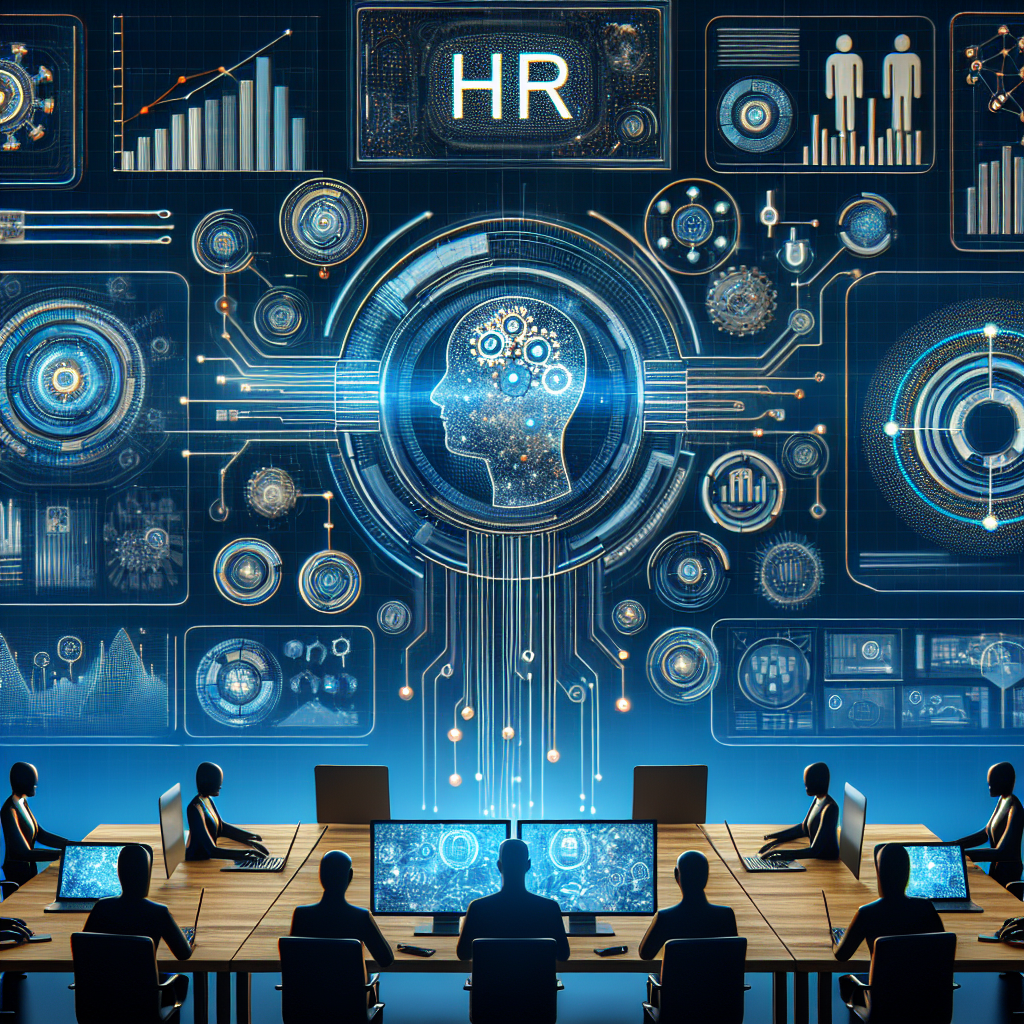AI-driven Business Intelligence for HR Analytics
In today’s fast-paced business environment, organizations are constantly looking for ways to gain a competitive edge. One area where this is particularly important is in human resources (HR) management. With the rise of artificial intelligence (AI) technologies, HR departments are now able to leverage AI-driven business intelligence tools to gain valuable insights into their workforce and make data-driven decisions to drive business growth.
AI-driven business intelligence for HR analytics involves the use of AI algorithms and machine learning techniques to analyze large amounts of data related to employees, recruitment, performance, and more. By harnessing the power of AI, HR departments can uncover patterns, trends, and correlations within their data that would be nearly impossible to identify through manual analysis alone.
One of the key benefits of AI-driven HR analytics is the ability to predict future trends and outcomes within the workforce. By analyzing historical data on employee performance, engagement, and turnover, AI algorithms can identify patterns that indicate which employees are most likely to succeed, which are at risk of leaving, and which areas of the business may be in need of improvement. This predictive capability allows HR departments to proactively address issues before they become a problem, ultimately leading to a more engaged and productive workforce.
Another important aspect of AI-driven HR analytics is the ability to personalize employee experiences. By analyzing data on individual employees, AI algorithms can identify their preferences, strengths, and areas for improvement. This allows HR departments to tailor training programs, career development opportunities, and rewards to meet the unique needs of each employee, ultimately leading to higher levels of engagement and retention.
Additionally, AI-driven HR analytics can help organizations improve their recruitment processes. By analyzing data on successful hires, AI algorithms can identify the characteristics and traits that are most likely to lead to a successful employee. This allows HR departments to target their recruitment efforts towards candidates who are most likely to succeed within the organization, ultimately leading to a more effective and efficient hiring process.
Overall, AI-driven business intelligence for HR analytics offers organizations a powerful tool to gain valuable insights into their workforce and make data-driven decisions that drive business growth. By harnessing the power of AI, HR departments can predict future trends, personalize employee experiences, and improve their recruitment processes, ultimately leading to a more engaged and productive workforce.
FAQs:
1. What data sources can be used for AI-driven HR analytics?
AI-driven HR analytics can draw data from a variety of sources, including employee performance reviews, engagement surveys, recruitment data, and more. By combining data from multiple sources, HR departments can gain a comprehensive view of their workforce and make more informed decisions.
2. How can AI algorithms predict future trends within the workforce?
AI algorithms can predict future trends within the workforce by analyzing historical data on employee performance, engagement, and turnover. By identifying patterns and correlations within the data, AI algorithms can forecast which employees are most likely to succeed, which are at risk of leaving, and which areas of the business may be in need of improvement.
3. How can AI-driven HR analytics personalize employee experiences?
AI-driven HR analytics can personalize employee experiences by analyzing data on individual employees to identify their preferences, strengths, and areas for improvement. By tailoring training programs, career development opportunities, and rewards to meet the unique needs of each employee, HR departments can create a more engaging and fulfilling work environment.
4. How can AI-driven HR analytics improve recruitment processes?
AI-driven HR analytics can improve recruitment processes by analyzing data on successful hires to identify the characteristics and traits that are most likely to lead to a successful employee. By targeting recruitment efforts towards candidates who are most likely to succeed within the organization, HR departments can streamline the hiring process and improve the quality of new hires.
In conclusion, AI-driven business intelligence for HR analytics offers organizations a powerful tool to gain valuable insights into their workforce and make data-driven decisions that drive business growth. By leveraging the power of AI algorithms and machine learning techniques, HR departments can predict future trends, personalize employee experiences, and improve their recruitment processes, ultimately leading to a more engaged and productive workforce.

